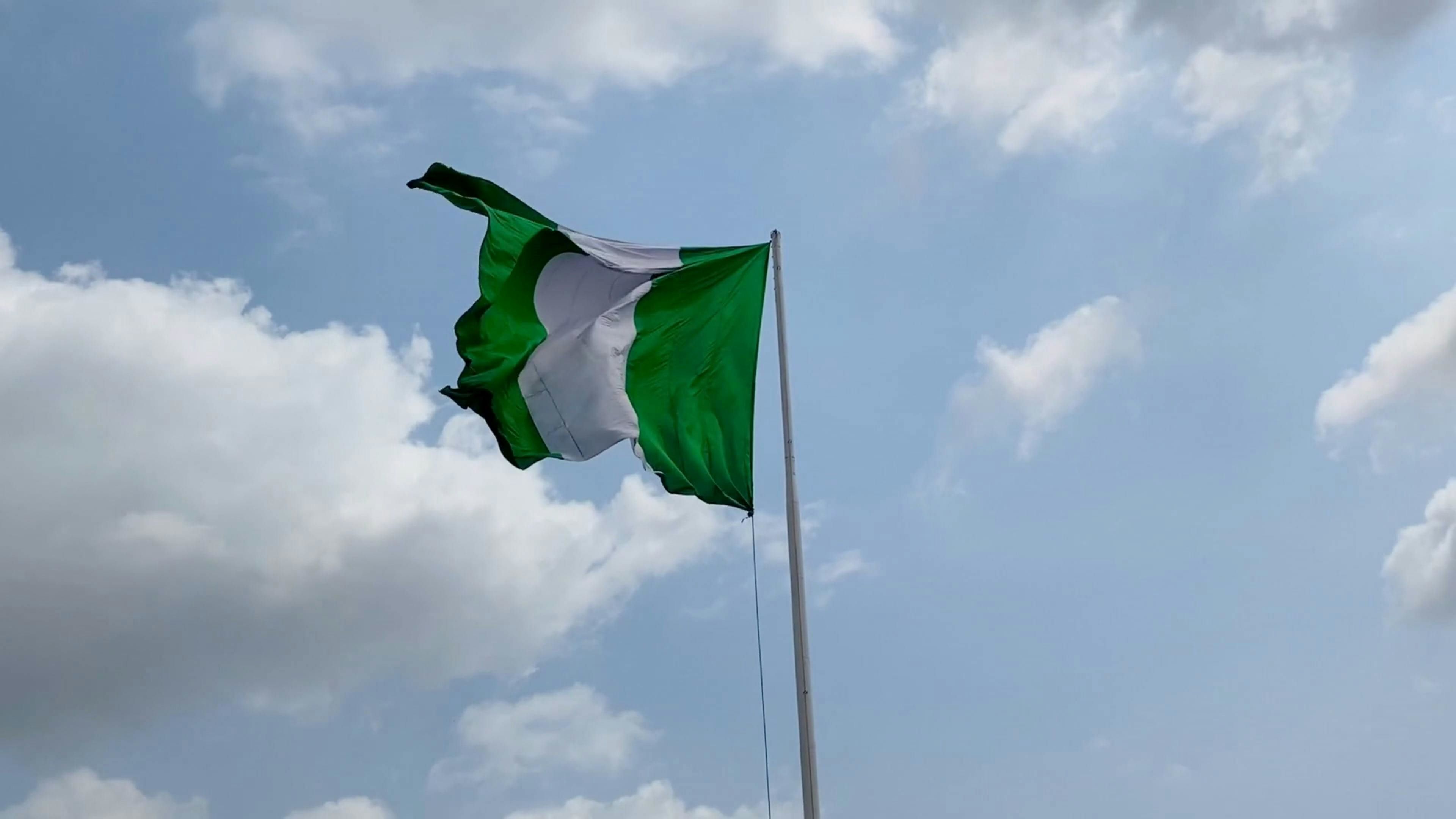
Have you ever wondered what makes Nigeria so unique? Nigeria, located in West Africa, is a country brimming with vibrant culture, diverse landscapes, and a rich history. With a population of around 213 million, it stands as Africa's most populous nation and the seventh in the world. From the bustling streets of Lagos to the serene beauty of the Niger Delta, Nigeria offers a tapestry of experiences. The official language is English, but over 500 indigenous languages echo through its regions. Known for its oil and gas industry, Nigeria also boasts a thriving agricultural sector and a burgeoning tech scene. Dive into these 50 facts to uncover the essence of this fascinating country.
Key Takeaways:
- Nigeria is a diverse country with deserts, rainforests, and vibrant cities. It has a rich history influenced by empires and colonial powers, and its economy is driven by oil, gas, and agriculture.
- Nigeria's rich cultural heritage is showcased through festivals, traditional clothing, music, and literature. However, the country faces challenges in education, healthcare, governance, and security, as well as environmental and security issues.
Location and Geography
Nigeria's diverse geography and strategic location make it a fascinating country. From deserts to rainforests, it offers a variety of landscapes.
- Nigeria is situated in West Africa, bordering the Gulf of Guinea in the south.
- It shares borders with Benin to the west, Chad and Cameroon to the east, and Niger to the north.
- The country's geography ranges from the Sahara Desert in the north to tropical rainforests in the south.
Population and Cities
Nigeria is not just the most populous country in Africa; it also boasts some of the continent's most vibrant cities.
- As of 2023, Nigeria's population is approximately 213 million people.
- The capital city of Nigeria is Abuja, officially declared the capital in 1991.
- Lagos, the largest city, is also the country's economic hub with a population of over 20 million people.
Language and Religion
Nigeria's cultural diversity is reflected in its languages and religious practices.
- The official language of Nigeria is English.
- Over 500 indigenous languages are spoken across the country, including Hausa, Yoruba, and Igbo.
- About 50% of the population identifies as Christian, while 40% are Muslim. Traditional African religions are also practiced.
Historical Background
Nigeria's history is rich and complex, influenced by various empires and colonial powers.
- The country was a major center for the trans-Saharan trade.
- Influenced by empires such as the Hausa and Yoruba kingdoms.
- Became a British colony in the late 19th century.
- Gained independence from Britain on October 1, 1960.
- Experienced a civil war from 1967 to 1970, known as the Biafran War.
Economy and Natural Resources
Nigeria's economy is diverse, driven by both natural resources and various industries.
- The economy is driven by the oil and gas industry.
- Nigeria is one of the largest producers of oil in Africa.
- Significant reserves of natural gas contribute to the economy.
- Agriculture is another significant sector, producing crops like cotton, cocoa, and groundnuts.
- The manufacturing sector includes textiles, food processing, and beverages.
Energy and Infrastructure
Energy and infrastructure are critical to Nigeria's development, though they face significant challenges.
- The utilization of natural gas can reduce reliance on imported petroleum products.
- Nigeria Liquefied Natural Gas (NLNG) is a major player in the energy sector.
- The NLNG plant in Bonny Island is one of the largest in the world.
- Nigeria faces frequent power outages and inadequate electricity supply.
- The country is investing in renewable energy sources like solar and wind power.
Culture and Festivals
Nigeria's rich cultural heritage is showcased through its festivals, traditional clothing, and arts.
- Known for vibrant cultural festivals such as the Osun Osogbo Festival and the Eyo Festival.
- Traditional clothing varies by ethnic group, including the "babban riga" for Hausa and "agbada" for Yoruba.
- The music scene includes genres like Afrobeats, Highlife, and Fuji music.
- Artists like Fela Kuti, King Sunny Adé, and Wizkid have gained international recognition.
- Nigerian literature is rich, with authors like Chinua Achebe and Wole Soyinka making significant contributions.
Education and Healthcare
Education and healthcare are vital sectors, though they face numerous challenges.
- Nigeria has many universities and polytechnics offering a wide range of academic programs.
- The education sector faces challenges such as inadequate funding and poor infrastructure.
- The healthcare system is underdeveloped, with a high infant mortality rate and low life expectancy.
- Efforts to improve healthcare include the National Health Insurance Scheme.
Governance and Security
Nigeria's governance structure and security challenges are crucial aspects of its national landscape.
- The judicial system is based on the common law system inherited from the British colonial era.
- The legislative system is bicameral, consisting of the Senate and the House of Representatives.
- The executive system is headed by the President, assisted by the Vice President and the cabinet.
- Nigeria has 36 state governments, each with its own governor and legislative assembly.
- Over 774 local governments provide basic services like healthcare and education.
- Traditional rulers play a significant role in the country's cultural and social life.
Environmental and Security Challenges
Nigeria faces significant environmental and security challenges that impact its development.
- Environmental challenges include deforestation, pollution, and climate change.
- The Niger Delta region faces significant environmental issues like oil spills and pollution.
- The Boko Haram insurgency has resulted in the displacement of millions of people.
- Security challenges include terrorism, kidnapping, and armed robbery.
- Corruption is a significant challenge, addressed by initiatives like the Economic and Financial Crimes Commission (EFCC).
Tourism and Natural Attractions
Tourism is an emerging sector with the potential to drive economic growth and promote cultural exchange.
- Nigeria has diverse natural attractions like the Osun Osogbo Sacred Grove and Kainji National Park.
- Cultural festivals are major tourist attractions, showcasing the country's rich cultural diversity.
- Traditional clothing and music are integral parts of Nigeria's cultural heritage.
- Nigerian literature reflects the country's complex history and cultural heritage.
- The tourism sector faces challenges but has significant potential for growth.
- Nigeria's rich cultural heritage and diverse natural resources make it a fascinating country.
Nigeria: A Land of Rich Heritage and Potential
Nigeria, with its vibrant culture, diverse landscapes, and rich history, stands as a beacon of potential in Africa. From bustling Lagos to the serene savannas, the country offers a unique blend of tradition and modernity. Despite challenges like corruption, security issues, and infrastructure gaps, Nigeria's natural resources and cultural wealth provide a strong foundation for growth. The nation's music, literature, and festivals highlight its rich cultural tapestry, while sectors like agriculture, manufacturing, and tourism hold promise for economic development. With ongoing efforts to improve education, healthcare, and energy, Nigeria is poised for a brighter future. Understanding these facts helps appreciate the complexities and opportunities within this fascinating country. Nigeria's journey is one of resilience and potential, making it a land worth watching.
Frequently Asked Questions
Was this page helpful?
Our commitment to delivering trustworthy and engaging content is at the heart of what we do. Each fact on our site is contributed by real users like you, bringing a wealth of diverse insights and information. To ensure the highest standards of accuracy and reliability, our dedicated editors meticulously review each submission. This process guarantees that the facts we share are not only fascinating but also credible. Trust in our commitment to quality and authenticity as you explore and learn with us.


